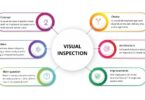
Data Security
The data security policies you practice in your business matter. It’s not just about keeping your employees and your income safe. Your customers want to know that the data you collect from them is processed and transferred securely. So it doesn’t matter if your business is a small startup or a global powerhouse: data is essential.
That being said, you need to follow specific rules. The safety principles you impose must adhere to international privacy laws and data protection requirements. The corporations that enforce stricter privacy policies have their data breached less frequently. That’s not a coincidence.
TechTarget defines “data security and privacy” as the part of information technology that has to do with an institution or an individual’s ability to decide if the information within a system can or should be shared with a third party.
Moreover, it helps organizations protect the data they hold in their office or their employee’s hands. At the same time, they lessen the probability of exploitation by hackers.
Data Security and Data Privacy. What is the difference?
The notions of data security and data privacy may seem similar. They’re not. Privacy is about keeping your data out of the hands of people who, in your judgment, don’t need to know it. It’s also about how you gather and store such data. Security, on the other hand, is about protection from cybercriminals.
Why is it important?
There are books written on why data security and privacy are essential for every business. Let’s go through the most obvious ones:
- It reduces the frequency and seriousness of data breaches in the organization.
- It prevents revenue loss.
- It protects your customers’ privacy.
- It builds up brand value.
- It supports your business code of ethics.
- It gives you added value when compared to other businesses.
Among the corporations known for their data protection policies, we find Dell, Norton, Rubrik, McAfee, Acuity, Darktrace, among many others.
The jobs
Implementing your business’s data protection policies doesn’t happen automatically. You need a plan, but most importantly, you need the right people to do it. Here are the jobs you find in organigrams of organizations that know what they’re doing in this regard:
- Data security specialist. They analyze data breaches and network failures to come up with solutions and prevention policies. The average salary for this position is about 76.000 USD.
- Data controller. He will get around 40.000 USD for helping the organization to define the means and objectives by which personal data is processed.
- Data protection officer. They analyze personal data, assess risks, mitigate data breaches, and will give you an overall technical assessment. They make 85.000 USD.
- Cybersecurity Analyst. They will manage, prevent, detect and protect you from cyber threats at 75.000 USD.
Data security and privacy have become paramount for businesses in today’s digital landscape. With the rising number of cyber threats and data breaches, companies must prioritize protecting sensitive information to maintain the trust and loyalty of their customers. By investing in top-notch cybersecurity infrastructure, businesses demonstrate their dedication to keeping client data safe from breaches or unauthorized access. This builds confidence among clients who feel reassured knowing that their sensitive information is in trusted hands like those at Shoplogix.com.
Data protection and training
Data security and privacy are signs of the current times. Digital technology is somewhat new in the human experience, and it’s become a standard feature of life and business only in recent years. Therefore, few people are appropriately trained to do the job correctly.
Also, the chances are that almost everyone in your organization will be using data (either your organization’s, your clients’, or their own) in some capacity. The long and short of it is that you must spend some time and money training your personnel. Training will help you meet the following goals:
- Ability to advise staff about their responsibilities in data protection.
- Ability to advise about the necessity of DPIA (data protection impact assessments).
- Serve as individual contact points on privacy.
- Serve as a contact point between your business and its supervisors.
If you want your business to perform in the 21st century, data is critical. It’s the difference between doing business here and now and the past. So you need to keep data security and privacy tight at all times. Your clients want it, need it, demand it. And so does your bottom line.





